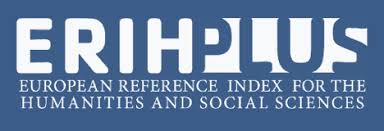№1, 2022
The rapid development of information and communication technologies, the increase in sources of information, the electronization of many services in all areas, the emergence of new means of communication between people, the collection of personal data in various information systems and other realities create new opportunities for development. On the other hand, the use of information to manipulate people's minds, to create chaos in society, actualizes the development of a culture of information security in society. The article analyzes the experience of developed countries in the formation of information security culture. As part of the documents, challenges and measures taken by international organizations such as the UN, the Organization for Economic Cooperation and Development, the experience of individual countries in raising the level of information security culture of professionals, citizens and various groups, as well as educators, children and youth, was studied and summarized. The study used methods of systematization, generalization, comparative analysis. The results of the study may be useful to institutions responsible for ensuring information security in society (pp.75-82).
- Okere I., Van Niekerk J.F., Carroll M. (2012). Assessing information security culture: A critical analysis of current approaches. Information Security for South Africa, October 2012, (pp.1—8).
https://doi.org/10.1109/ISSA.2012..6320442 - Alvarez-Dionisi, L. E., Urrego-Baquero, N. (2019). Implementing a Cybersecurity Culture. ISACA Journal, 2., 1-7.
- Corradini I., Nardelli E. (2020). Social Engineering and the Value of Data: The Need of Specific Awareness Programs. International Conference on Applied Human Factors and Ergonomics. Advances in Human Factors in Cybersecurity, (pp.59—65).
https://doi.org/10.1007/978-3-030-20488-4_6 - Mahmudova R.Sh. (2021). About some aspects of the culture of information security of the individual and society. Problems of the information society (in Azerbaijani), 1, 56-66.
https://doi.org/10.25045/jpis.v12.il.05 - Petrenko, S.A., Petrenko, A.A. (2015). Cyber-learning: ENISA guidelines. Cybersecurity issues: scientific and practical journal (in Azerbaijani), 3 (11), 2-14.
- OECD Guidelines for the Security of Information Systems and Networks: Towards a Culture of Security. https://www.oecd.org/sti/ieconomy/15582260.pdf
- Sladkova, N.M., Ilchenko, O.A., Stepanenko, A.A., Shaposhnikov, V.A. (2021). Features of assessment of competences in information security of public municipal services. Issues of state and municipal management (in Russian), 1, 122-149.
- Official website of the EU Cyber Security Agency.
https://www.enisa.europa.eu/publications/raising-awareness-of-cybersecurity/@@download/fullReport - Dvinskikh, D.Yu., Talapina, E.V. (2019). Risks of development of data turnover in public administration. Issues of state and municipal management (in Russian), 3, 7–30.
- Competency Model for Cybersecurity (2011). https://www.chcoc.gov/content/competency-model-cybersecurity
- National Initiative for Cybersecurity Education (NICE): Cybersecurity Workforce Framework. 2017.
https://nvlpubs.nist.gov/nistpubs/specialpublications/nist.sp.800-181.pdf - Secure Trust Bank PLC Annual Report & Accounts 2020. https://www.securetrustbank.com/images/InvestorRelations/r2020/STB-Pillar-3-Annual-Disclosures-2020-Final.pdf
- Joint Communication of the European Commission and European External Action Service: Re-silience, Deterrence and Defence: Building strong cybersecurity for the EU.
https://ec.europa.eu/digital-single-market/en/news/building-strong-cybersecurity-europe - Malyuk, A.A., Polyanskaya, O.Yu. (2016). Foreign experience in the formation of information security culture in society. Information technology security (in Russian), 4, 25-37.
- Cybersecurity&Infrastructure Security Agency. https://www.cisa.gov/uscert/ncas
- Safer Internet Programme: Emprowering and Protecting Children Online. Europe’s Information Society. http://ec.europa.eu/ information_society/activities/sip/index_en.htm
- EU “Better Internet for Kids” Programme. https://www.betterinternetforkids.eu/en-GB/home
- Website of an organization ensureing safety of children on the Internet in the UK. https://swgfl.org.uk/
- Official website of Ahlman College, Finland. https://www.ahlman.fi/
- Official website of the Greek Center for Safe Internet.
https://www.betterinternetforkids.eu/en-GB/sic/greece





.jpg)









